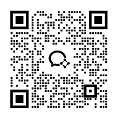What Are the Advantages of Purchasing Cross Roller Slewing Bearings in Wholesale Quantities?
Cross roller slewing bearings are crucial components in various industrial applications, providing smooth rotational movement and high load-bearing capacity. When it comes to procurement strategies, purchasing these bearings in wholesale quantities offers several significant advantages. This blog post explores the benefits of buying cross roller slewing bearings in bulk, focusing on cost savings, supply chain efficiency, and quality assurance.
How do cross roller slewing bearings differ from other types of bearings?
Cross roller slewing bearings are a specialized type of bearing designed for applications that require high precision and the ability to handle complex loads. Unlike conventional ball bearings or roller bearings, cross roller slewing bearings feature cylindrical rollers arranged in a crisscross pattern between the inner and outer rings. This unique configuration allows them to handle axial, radial, and moment loads simultaneously, making them ideal for applications where stability and accuracy are paramount.
The key differences between cross roller slewing bearings and other types of bearings include:
1. Load Capacity: Cross roller slewing bearings excel in handling combined loads (axial, radial, and moment) more effectively than single-row ball bearings or traditional roller bearings. This makes them suitable for heavy-duty applications in industries such as robotics, medical equipment, and machine tools.
2. Precision: The crisscross arrangement of rollers provides enhanced stability and accuracy, resulting in smoother rotation and reduced friction. This precision is crucial in applications like semiconductor manufacturing equipment, optical instruments, and high-precision rotary tables.
3. Compact Design: Cross roller slewing bearings often have a more compact design compared to other bearing types with similar load capacities. This space-saving feature is particularly valuable in applications where weight and size constraints are significant factors.
4. Rigidity: The unique structure of cross roller slewing bearings offers superior rigidity, which is essential for maintaining accuracy under varying load conditions. This characteristic makes them ideal for use in machine tool turntables, industrial robots, and radar antennas.
5. Reduced Maintenance: Due to their robust design and ability to handle complex loads, cross roller slewing bearings often require less frequent maintenance compared to other bearing types, leading to reduced downtime and lower long-term operational costs.
Understanding these differences is crucial when considering wholesale purchases of cross roller slewing bearings. Their unique properties make them indispensable in specific applications, and buying in bulk can ensure a steady supply of these critical components for manufacturers and maintenance operations.
What factors should be considered when choosing a supplier for wholesale cross roller slewing bearings?
Selecting the right supplier for wholesale cross roller slewing bearings is a critical decision that can significantly impact your business operations, product quality, and bottom line. Several key factors should be carefully evaluated to ensure you partner with a reliable and capable supplier:
1. Quality Assurance and Certifications: Look for suppliers with robust quality management systems and relevant industry certifications such as ISO 9001. These certifications indicate a commitment to consistent quality and continuous improvement. Additionally, check if the supplier adheres to specific industry standards relevant to your application, such as ABMA (American Bearing Manufacturers Association) or JIS (Japanese Industrial Standards) for bearings.
2. Manufacturing Capabilities: Assess the supplier's manufacturing facilities and capabilities. A supplier with advanced production equipment and processes is more likely to deliver high-quality bearings consistently. Consider arranging a facility tour or requesting detailed information about their manufacturing processes, including heat treatment, grinding, and quality control procedures.
3. Technical Expertise and Support: Choose a supplier with strong technical knowledge and the ability to provide engineering support. This expertise can be invaluable when you need assistance with bearing selection, custom designs, or troubleshooting. Look for suppliers who offer technical consultations, design optimization services, and comprehensive product documentation.
4. Product Range and Customization Options: Evaluate the supplier's product range to ensure they can meet your specific requirements. A supplier with a wide range of cross roller slewing bearings in various sizes, materials, and configurations can better accommodate your current and future needs. Additionally, consider their ability to offer customized solutions for unique applications.
5. Production Capacity and Lead Times: For wholesale purchases, it's crucial to partner with a supplier who can meet your volume requirements and deliver orders within acceptable timeframes. Discuss their production capacity, typical lead times, and ability to handle rush orders when necessary.
6. Pricing and Payment Terms: While cost should not be the only factor, it's important to ensure the supplier's pricing is competitive and aligns with your budget. Compare quotes from multiple suppliers, but be wary of prices that seem too good to be true, as they may indicate compromises in quality. Also, consider the payment terms offered, such as bulk purchase discounts or flexible payment schedules for large orders.
7. Reputation and Track Record: Research the supplier's reputation in the industry. Look for customer testimonials, case studies, and references from other businesses in your sector. A supplier with a proven track record of reliability and customer satisfaction is more likely to meet your expectations.
By carefully considering these factors, you can select a wholesale supplier for cross roller slewing bearings that not only meets your immediate needs but also supports your long-term business objectives. Remember that the cheapest option is not always the best choice in the long run. A supplier that offers a balance of quality, reliability, technical support, and competitive pricing will ultimately provide the best value for your wholesale bearing purchases.
What are the potential cost savings associated with bulk purchases of cross roller slewing bearings?
Purchasing cross roller slewing bearings in wholesale quantities can lead to significant cost savings for businesses. These savings extend beyond the obvious reduction in unit price and can positively impact various aspects of your operations. Let's explore the potential cost savings associated with bulk purchases of cross roller slewing bearings:
1. Volume Discounts: The most immediate and apparent cost saving comes from volume discounts. Suppliers often offer tiered pricing structures, where the unit price decreases as the order quantity increases. By purchasing in bulk, you can take advantage of these discounts, potentially reducing the per-unit cost by 10-30% or more, depending on the supplier and order volume.
2. Reduced Shipping and Handling Costs: Consolidating your purchases into larger, less frequent orders can significantly reduce shipping and handling expenses. Instead of paying for multiple smaller shipments, you can benefit from economies of scale in transportation. Many suppliers offer free or discounted shipping for orders above a certain value, further enhancing your savings.
3. Lower Administrative Costs: Bulk purchasing reduces the frequency of orders, which in turn minimizes the administrative overhead associated with procurement. This includes costs related to processing purchase orders, managing invoices, and coordinating deliveries. By streamlining these processes, you can reallocate staff time to more value-added activities.
4. Inventory Management Efficiency: While it might seem counterintuitive, buying in bulk can lead to more efficient inventory management. With a larger stock on hand, you can optimize your storage systems and reduce the frequency of stock checks and reorders. This efficiency can lead to lower labor costs associated with inventory management.
5. Production Continuity and Reduced Downtime: Maintaining a larger inventory of critical components like cross roller slewing bearings ensures production continuity. This reduces the risk of costly production downtimes due to stock-outs, which can be particularly expensive in industries with high-value manufacturing processes or tight production schedules.
6. Price Stability: By purchasing in bulk, you can lock in prices for an extended period, protecting yourself against potential price increases due to market fluctuations or raw material shortages. This price stability allows for more accurate budgeting and cost projections.
7. Reduced Quality Control Costs: When you receive a large batch of bearings from a single production run, you can often streamline your quality control processes. Instead of inspecting multiple small batches, you can implement a more efficient sampling and testing protocol for the larger batch, potentially reducing overall QC costs.
8. Negotiation Leverage: Large volume purchases give you more leverage in negotiations with suppliers. Beyond price discounts, you may be able to negotiate favorable terms such as extended warranties, priority technical support, or customized features without additional costs.
9. Reduced Packaging Waste: Bulk purchases often come with reduced packaging per unit, leading to less waste and lower disposal costs. This not only saves money but also aligns with sustainability goals, potentially improving your company's environmental profile.
To fully realize these cost savings, it's crucial to carefully analyze your usage patterns, storage capabilities, and cash flow situation. Implement a robust inventory management system to track usage and prevent overstocking. Additionally, consider partnering with a supplier who offers consignment stock options or just-in-time delivery for optimal inventory levels.
It's important to note that while the potential for cost savings through bulk purchases is significant, it must be balanced against the risks of obsolescence, especially in industries with rapidly evolving technologies. Regularly review your usage patterns and technological trends to ensure your bulk purchasing strategy remains optimal.
In conclusion, the cost savings associated with bulk purchases of cross roller slewing bearings extend far beyond the initial price discount. By considering the full spectrum of potential savings and implementing a strategic approach to procurement, businesses can significantly reduce their overall operational costs and improve their competitive position in the market.
Luoyang Huigong Bearing Technology Co., Ltd. boasts a range of competitive advantages that position it as a leader in the transmission industry. Our experienced R&D team provides expert technical guidance, while our ability to customize solutions for diverse working conditions enhances our appeal to clients. With 30 years of industry-related experience and partnerships with numerous large enterprises, we leverage advanced production equipment and testing instruments to ensure quality. Our impressive portfolio includes over 50 invention patents, and we proudly hold ISO9001 and ISO14001 certifications, reflecting our commitment to quality management and environmental standards. Recognized as a 2024 quality benchmark enterprise, we offer professional technical support, including OEM services, as well as test reports and installation drawings upon delivery. Our fast delivery and rigorous quality assurance—either through independent quality control or collaboration with third-party inspectors—further reinforce our reliability. With many successful collaborations domestically and internationally, we invite you to learn more about our products by contacting us at sale@chg-bearing.com or calling our hotline at +86-0379-65793878.
References
1. SKF Group. (2023). "Slewing bearings." SKF.com.
2. Schaeffler Technologies AG & Co. KG. (2024). "Slewing rings." Schaeffler.com.
3. THK Co., Ltd. (2023). "Cross Roller Ring." THK.com.
4. NSK Ltd. (2024). "Roller Bearings." NSK.com.
5. Timken Company. (2023). "Slewing Ring Bearings." Timken.com.
6. Kaydon Bearings. (2024). "Slewing Ring Bearings." Kaydon.com.
7. Liebherr Group. (2023). "Slewing Bearings." Liebherr.com.
8. Rothe Erde GmbH. (2024). "Slewing Bearings." Rothe-Erde.com.
9. American Bearing Manufacturers Association. (2023). "Bearing Standards." ABMA.com.
10. Japan Bearing Industrial Association. (2024). "Technical Information." JBIA.or.jp.

